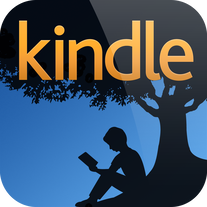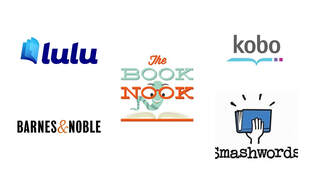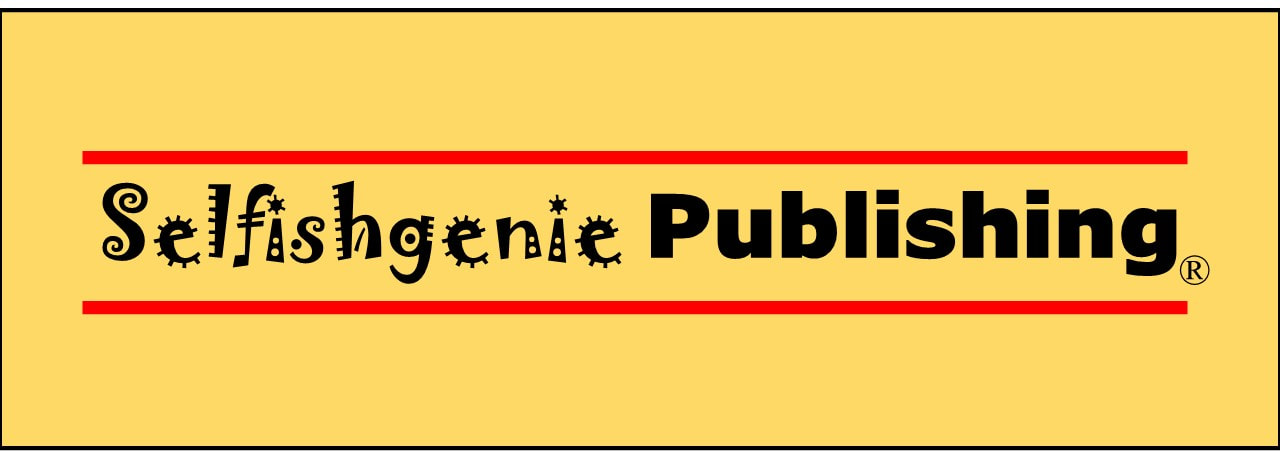Week 12- Location, Location, Location  There is one P of the marketing mix we haven’t really touched on yet and that is Place. This comes in two different forms for the Indie author – where to sell your books and where to promote them. We’ll start with where to sell. There are a lot of Indie authors (and other people) who get very snooty about Amazon. Because it is so big and because its owner is so rich, they take a “stand against the man” and won’t trade with them. OK. You’re entitled to your view and I respect it. But let me tell you something. In 2019 Amazon accounted for 47% of all self-published books sold in the world, in all formats. That leaves all the others (Kobo, BookNook, Smashwords, Lulu, et al) dividing up the other 53% between them. No matter what your favourite platform, it is never going to match Amazon in terms of market share. "it is never going to match Amazon in terms of market share"  Amazon are shy about revealing details of how many Kindles have been sold, but the estimates are between 20 million and 90 million. Some of those will probably be shared between users. There is no data that I can find on how many times the Kindle app has been downloaded, but it is available to everyone who has a digital device if they fancy reading a Kindle book. That is an estimated 5.2 billion phone handsets and an estimated 1.14 billion tablets. Trust me, Amazon aren’t paying me to tell you these things. I’m just providing the data and you can make your own decisions. Can you really afford not to be on Amazon? Can you really afford not to link your book to Amazon if you are already on there? OK, that’s just going to make Amazon bigger, but it is in the hands of the other retailers to try and compete with Amazon, but right now they aren’t even in the game, let alone inside the stadium and fighting for a win.  I’m not saying that you shouldn’t be on the other platforms. It makes sense to be everywhere you can, but the most likely place for your book to sell is the Big A. One of the advantages of some of the other platforms is that some of them allow the author to offer coupons and other ways to provide discounts and free books to readers. You can do this on Amazon but it is far harder. For example, we passed a milestone for a number of followers on Twitter, so we Tweeted a Smashwords coupon code for a 100% discount on one of our books that was only valid for 24 hours. We got several downloads (and lots of new Twitter followers) and then a couple of sales from people who missed the cut-off time for the coupon but decided they wanted to read the book anyway. We couldn’t have done that with Amazon.  Amazon’s Kindle Unlimited (KU) programme is the biggest subscription service/lending library for Indie books. This puts the Indie author into a bit of a quandary. Because it is part of KDP’s T&Cs that you can’t enrol your eBook on KU if it is published on another platform. Sneaky, I know. So, you now have to try to work out whether you are going to be financially better off by not enrolling in KU and selling through multiple platforms, or whether your sales on other platforms aren’t worth you being there, so it is better to be on KU instead. That’s not always an easy choice to make.
books. That is part of your market research. For example, women are more likely buy Kindles than men – but men are more likely to become permanent Kindle users than women, if they have one. Maybe it is just that women buy the Kindles as gifts for men in the first place, but I have no evidence to back up that supposition. The good news is there’s room for some trial and error. You can enrol your book in KU at any time, so if you aren’t making sales on the other platforms you can de-list the book and enrol it on KU instead. It’s harder to unenroll from KU as you have to wait until the end of a 3 month period and if you miss the date it will auto-enrol you for another 3 months.  Now, which social media platforms are you going to use to reach your target audience? We touched on this in earlier blogs but it is time to take a more in-depth look. The demographics of social media usage varies from platform to platform. Those that are better for visual images, especially video, tend to be more popular with young people. The ones that allow you to “tell a story” in words, like Facebook, are more used by people in the 30 to 50 age group. This is going to affect your choice of platform and your choice of messages. You can be on all of them, of course, but you are going to waste some of your effort by concentrating on the wrong ones. Platform usage also varies from country to country, so here’s some stats:
 From that you might assume that the UK is all on Twitter. You would be wrong. When you look at the actual number of users it goes FB (38 million), Insta (28 million) then Twitter (17 million) so the place to be seen would appear to be FB. The same applies to the USA (310m, 95m and 68m). What makes it more difficult is that these numbers change every year. Those are the ones for 2020. Who knows where people will be by the end of 2021. But what this means is that if you are targeting a global population for your books, you can analyse data like that and decide which platform is going to be best for you to concentrate on in that country. In both the USA and UK, it is most definitely FB, not Twitter. This becomes even more significant when it comes to spending money on advertising (a topic for a later blog), then clearly you are better off spending your hard-earned cash on FB advertising, not Twitter, because FB can reach more people. "In both the USA and UK, it is most definitely FB, not Twitter. "  Facebook's founder, Mark Zuckerberg Facebook's founder, Mark Zuckerberg Of course, that takes us back into the world of personal politics because a lot of people don’t like Mark Zuckerberg and don’t want to make him any richer than he is. On the other hand, those same people want to sell books. Whatcha gonna do? You can slice and dice the data in a number of other ways. For example, is your target audience college educated? If yes, then more college educated people use Facebook than Twitter. Is your ideal reader a high-income earner? Then Facebook is also the place for you. On all 3 platforms the largest proportion of users is amongst the higher income bracket, but on FB it is a massive 74% of high-income earners. That is to say, of all those users of social media who are high income earners, 74% will use FB but only 31% will use Twitter. "You can slice and dice the data in a number of other ways" Where did all that data come from? It came from this website, to which we provided a link in a previous blog. The data relates mainly to users in the USA, but there is no reason to suggest that the data doesn’t transpose to the UK, especially when you look at that number of users for the different countries that are shown above.  Market research companies allow some of their data to be accessed, which can be helpful. For example, on the Yougov website (registration is free) I discovered that fans of Bernard Cornwell are more likely to be male, over 55, interested in history and politics and follow the news and, when it comes to reading, they want to find a series that “they can dive into for a while”. Now that I know that age bracket, I can find out which social media platform they are most likely to use and target them on that and I know what sort of messages they are going to be interested in reading and engaging with. OK, the amount of data I got from Yougov wasn’t that much, but they make their money by selling data, not giving it away for free. Having registered with them I’ll probably be bombarded with emails inviting me to take out a subscription. I may not need to, because the insights I got from them without paying were high value in terms of audience profiling.  Best-selling author Bernard Cornwell Best-selling author Bernard Cornwell Why Bernard Cornwell? Well, I’m a fan. But I could have got similar data for the readers of authors of any genre of book that we publish. Because their fans are probably the people we want to target for advertising. As you can see this is, again, very time-consuming stuff. If you are juggling family, work and being an author, you haven’t got much time leftover for marketing. Well, I don’t want to pressure you, but you can always find someone who can do some of it for you. Yes we will take a share of your royalties, but a share is better than no royalties at all. In the next edition of this blog we’re going to look at the one place where you may be tempted to spend some money – advertising. Is it something an Indie author should be considering? If you have enjoyed this blog and found it informative, make sure you don't miss future editions by signing up to receive our newsletter. Just click the button.
0 Comments
Leave a Reply. |
AuthorThis blog is compiled and curated by the Selfishgenie publishing team. Archives
March 2025
|

 RSS Feed
RSS Feed